Would anyone believe 5 years ago that China will one day overtake Japan as the world’s top auto exporter? Yet, the country which the West often mocks for producing cheap and low-quality products has evolved at a remarkable rate from being an imitator to an innovator. The so-called copycat is now threatening not only Japan, but also the U.S. and the European Union.
The Group of Seven (G-7), popularly known as the club of rich nations, has no intention of allowing China to join the elite club. But the recent stunning introduction of Huawei Mate 60 smartphone, powered by a 7-nanometre microchip which the U.S. did not believe the Chinese have the capability to produce, simply shows that the red dragon cannot be chained, let alone caged for long.
China has already demonstrated its innovation capabilities in several key areas, including advanced chips, quantum computing, supercomputers and AI (Artificial Intelligence). In order to stop the rising nation, the United States has designed dozens of laws – as well as sanctions – to cripple the Chinese. At the very least, the U.S. hopes it could “delay” China from overtaking it.
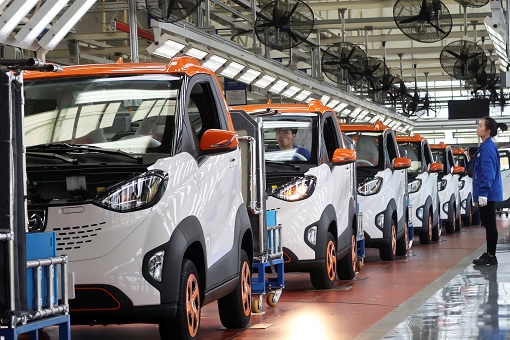
But there is one industry which the Chinese have become the global leader. In the first six months of 2023, China surpassed Japan to become the world’s largest vehicle exporting country (China already overtook the U.S. as global largest market in 2009), thanks largely to electric cars. In the first 3 months alone, the Japanese automakers exported 950,000, whilst Chinese manufacturers sold 1.07 million.
Yes, not only China is the world’s biggest factory, it is also the global’s largest market for new vehicles and the planet’s largest exporter of cars. Interestingly, it was only last year that Germany lost its place as the world’s second largest car exporter to the Chinese, where China exported 3.2 million vehicles compared to Germany’s 2.6 million. How did this happen?
It was not pure luck or coincidence. China realized it would never overtake the American, German and Japanese internal combustion engine technologies and innovations. At best, the Chinese could only play catch-up, even though they were already the powerhouse in the manufacturing and assembling of foreign vehicles. They were just cheap labours doing the fulfillment rather than innovate and create new niche markets.
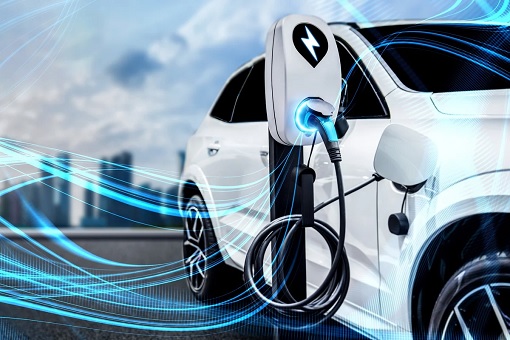
So, the Chinese government took the risk of breaking away from the established technology to invest in completely new territory – electric vehicles. Clearly, the shift away from fossil fuels has helped fuel the rise of China’s automotive industry. The Ukraine War was seen as an opportunity behind a crisis, which saw a surge of Chinese-made cars in Russia after the Western countries imposed trade sanctions on the Kremlin.
As Germany and Japan quit the Russian market due to pressure from Uncle Sam, dealing a blow to Volkswagen and Toyota, Chinese carmakers like Geely, Chery and Great Wall freely invaded Russia and increased their market share. Within a year, Chinese exports to Russia have tripled to 140,000 vehicles. Russia is now China’s best customer for obvious reason.
The fact that Belgium, Australia and Thailand were the biggest buyers of Chinese-made electric cars has sent shivers down the spine of the Western nations. Tesla’s “Gigafactory” in Shanghai alone is capable of producing 1.25 million vehicles a year. The strategy of giving Elon Musk the special privileges is working like a charm. Washington has to think twice about sanctioning China.
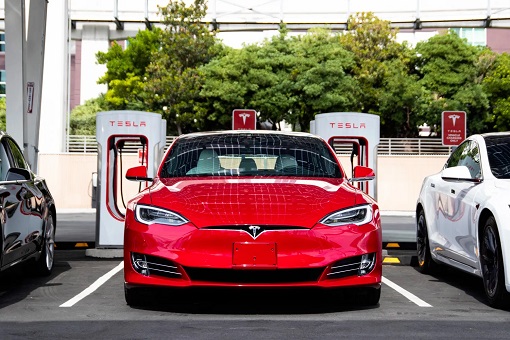
Musk’s EVs (electric vehicles) are being sent to Thailand as the gateway to Southeast Asia, while Brussels – the capital of Europe – serves as endorsement of Chinese EVs. As Belgium, known for its policies which favour cars, welcomes Chinese brands like BYD, the European Commission wasn’t impressed, including European carmakers who were worried that China could flood the market with cheap cars.
The surge in EVs in Belgium and across Europe is just getting started, and it’s not hard to see how the Chinese car manufacturers will win the war. The arrival of Chinese electric cars will lead to the annihilation of local players. Costing just US$11,000 (£8,855; RM48,813), BYD Auto Co has recently unveiled the “Seagull” – the cheapest EV (electric vehicle) – at the Shanghai Motor Show in April.
Last year, BYD sold a jaw-dropping 1.86 million electric vehicles – more than the previous 4 years combined (it sold only 593,745 cars in 2021). Already outsold Volkswagen in sales on the Chinese market in November 2022, BYD even surpassed Tesla’s 1.31 million electric vehicles in 2022. From the third-largest automaker in 2016, BYD became the largest EV manufacturer in the world last year.
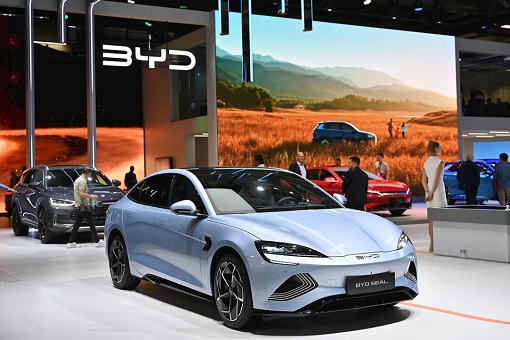
In order to stop the invasion of China’s battery-powered cars, the European Union has started its old trick again – investigating whether the country’s electric vehicle industry receives unfair subsidies. In truth, however, the EU is incredibly terrified that the flooding of the Chinese EVs will further increase the record trade deficit last year of almost €400 billion (US$420 billion; RM2 trillion).
When EU trade chief Valdis Dombrovskis paid a 4-day visit to Beijing and asked for a level playing field for European companies, he got an earful of lectures instead. Chinese commerce minister Wang Wentao told him that the rapid development of China’s EV sector had been the result of research and development, free competition and a “complete industry system”.
Vice Premier He Lifeng, on the other hand, has warned Dombrovskis about Beijing’s strong “concern and dissatisfaction” over the investigation launched by the EU. China has also accused the EU of “protectionism” that would affect cooperation and the stability of global automotive supply chains – suggesting that the Chinese government could target European carmakers.
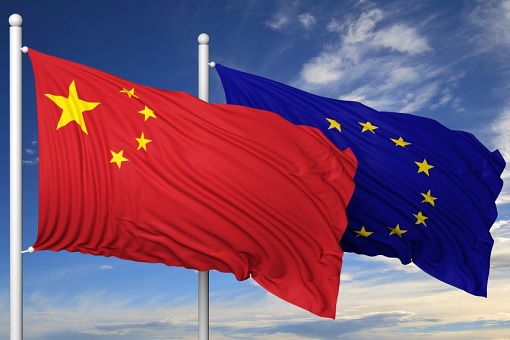
China’s unfair trade practices, as claimed by the European Union, are the same playbook used by former U.S. president Donald Trump. But if even the U.S. has failed to bring its rival down to its knees in a trade war (and tech war) between the two world’s biggest economies, what makes the EU thinks it could assert its demands, let alone threatens China?
Dombrovskis had already shown his weak bargaining chip during a keynote speech at the prestigious Tsinghua University, saying that Europe has no intention of cutting relations with China or seeking self-sufficiency. He was basically begging for fairness, which Beijing promptly rejected. China knew the EU needs the massive Chinese markets more than China needs Europe.
To make matters worse, German Foreign Minister Annalena Baerbock mocked Chinese president Xi Jinping as a “dictator”, obviously trying to look tough during her visit to the United States. During a visit to Beijing in April, Baerbock warned that any attempt by China to control or invade Taiwan would be unacceptable, raising tension between both nations.
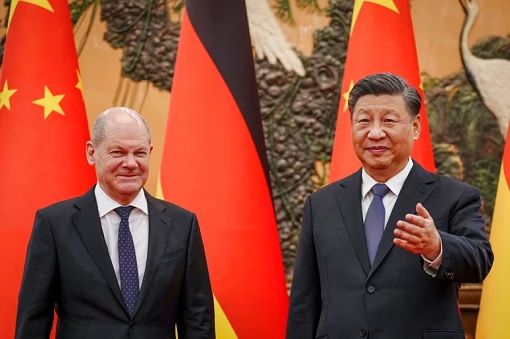
In reality, Germany, the European’s largest economy, would be in trouble if China retaliates. And if the EU decides to impose tariffs on imported Chinese electric vehicles, all hell will break loose. Having learned from Trump, who had slapped tariffs on Chinese imports, China could put up its own trade barriers limiting German car exports to China, which in turn will be a disaster for Europe’s economy.
As German automotive industry relies on China for around a third of passenger car sales, even German carmakers have criticized the EU probe for fear of retributions by Beijing. Bundesbank, Germany’s central bank, has warned against the significant economic risks of German industry’s exposure to China because more than 40% of German companies depend on critical materials from China.
Hilariously, as some EU and German lawmakers and politicians tried to isolate China, two powerful engines of the German economy – Volkswagen and chemical company BASF – have doubled down on their Chinese investment. Volkswagen, which has more than 40 plants in China, announced it would invest US$700 million or 5% stake in Chinese EV maker XPeng.
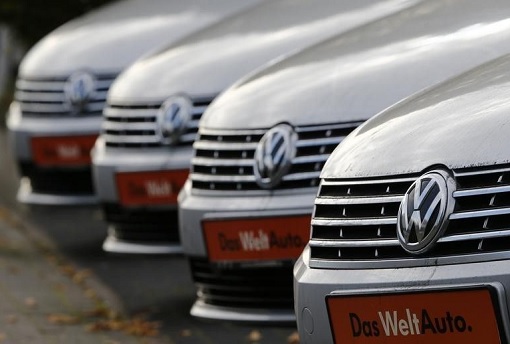
In defiance of Washington’s pressure, Volkswagen CEO Oliver Blume said the company would invest more in China – largely because it needed Chinese technology for the Chinese market. Germany depends on China to provide essential technology products, including mobile phones and LEDs, as well as raw materials, including lithium and rare earth elements.
German luxury automaker BMW announced earlier this year that its next-generation electric car, the Neue Klasse (or New Class), would be produced beginning in 2026 in China for Chinese customers, rather than exported from Germany. Additionally, BMW is also investing in high-voltage EV battery development and production in China for new-generation EVs.
Already plunged into a technical recession during the first three months of the year, Bundesbank revealed that the German economy is likely to shrink this quarter too thanks to stagnant growth. Carsten Brzeski, global head of macroeconomics at the Dutch bank ING, describes the German economy as being “stuck in the twilight zone between stagnation and recession”.
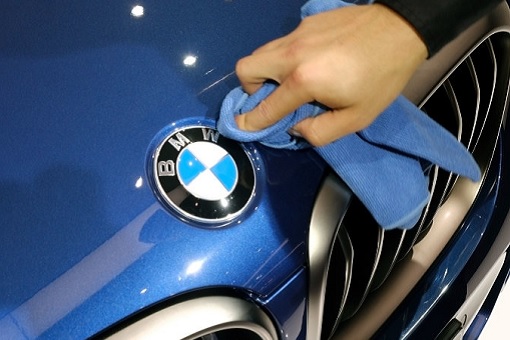
In fact, Germany’s prolonging recession and inflation has earned it the term “slowcession”. The nation is also being ridiculed as the “sick man” of Europe. Not everyone agrees to declare war on China though. German Transport Minister Volker Wissing has rejected the idea of punitive tariffs as a result of the European Commission’s investigation into Chinese electric vehicle subsidies.
Other Articles That May Interest You …
- How U.S. Sanction Fails & Backfires Again – Unstoppable Huawei Unveils Latest 5G Smartphone That Makes Satellite Calls
- Electric Car As Cheap As $11,000 – How China Beats The U.S. In Electric Vehicles & Leaves Global Brands In The Dust
- Learn From China – Mahathir Has To Dismantle Discrimination & Racist Economic Policy First
- If Proton Has The Quality Of Volkswagen Or Toyota, People Will Not Dump The National Cars
- Third National Car, The Unfinished Business – Why Mahathir Should Wake Up & Stop Hallucinating
- China Geely Introduces Meritocracy – But Handicapped Proton “Bumiputeras” Aren’t Happy
- 80% Cheaper To Take Robo-Taxi – The Next Car You Buy Could Be Your Last
- Delivering 310 Miles (499-KM) – Tesla Model 3 Could Be As Successful As iPhone
- Australia Will Get World’s Largest Battery – Free – If Musk Fails Within 100 Days
- Leading The World – Volvo To Make Only Electric & Hybrid Cars From 2019
- Here’s Why Zuckerberg Was Furious When SpaceX Rocket Exploded

|
|
September 27th, 2023 by financetwitter
|


|

|

|

|

|

|




























Comments
Add your comment now.
Leave a Reply